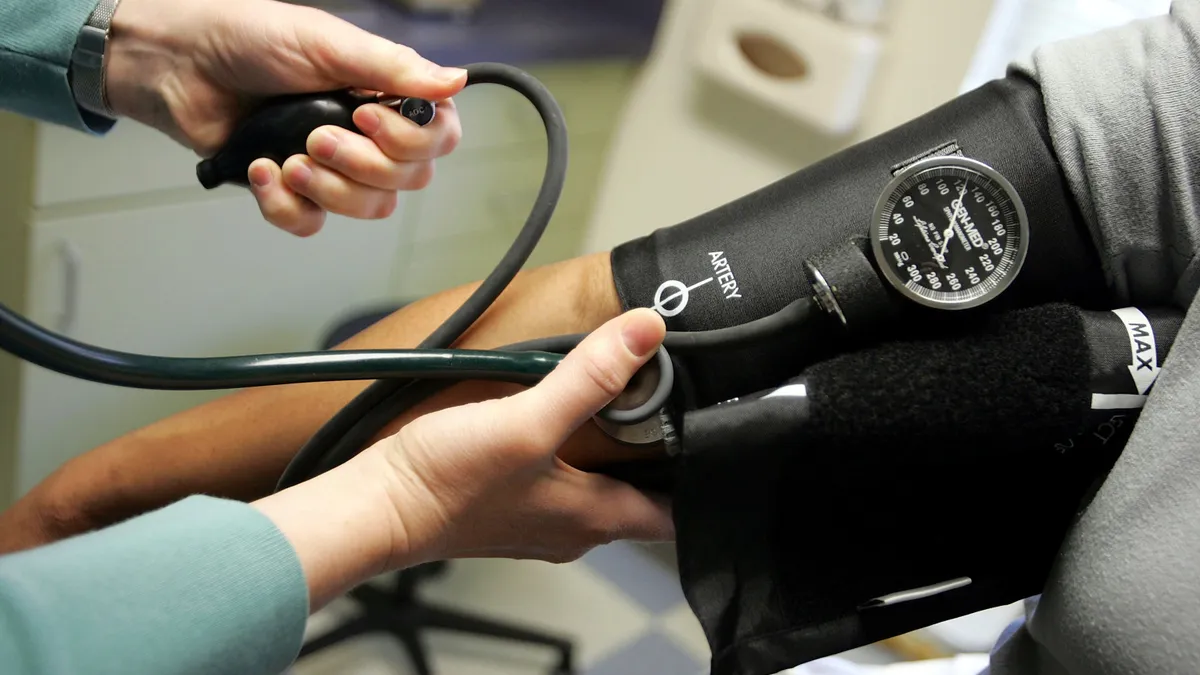Dive Brief:
- Physical health in the U.S. has worsened since the onset of the COVID-19 pandemic, a shift that could have detrimental effects on employers, according to Gallup survey results released Dec. 14.
- Both obesity and diabetes are on the rise, Gallup found. The percentage of U.S. adults Gallup determined to have diabetes is 38.4%, up 6 percentage points from 2019 and a hair behind the record high 39.9% recorded last year. The number of respondents who said they have diabetes hit a new high of 13.6%, an increase of 1.1 points since 2019, per Gallup.
- “These health effects have practical implications for the U.S. economy. After controlling for factors such as age, income and education, workers with poor physical health — and poor wellbeing generally — suffer greatly enhanced levels of unplanned absenteeism and healthcare utilization (and associated costs) than do their counterparts,” Dan Witters, research director of the Gallup National Health and Well-Being Index, said.
Dive Insight:
Unhealthier eating habits and greater instances of high cholesterol, obesity and diabetes all lead to greater healthcare use and spend, Gallup said, which can hurt employers as healthcare costs continue to rise.
Medical benefits in the U.S. are expected to cost 8.9% more in 2024, following an increase of 8.2% in 2023, according to WTW’s Global Medical Trends Survey. Insurers surveyed attributed the increase in cost partially to members’ poor health habits, including unhealthy diets, sedentary behavior, tobacco use and excessive use of alcohol, factors that also lead to a greater incidence of cardiovascular disease.
Employers can devise their benefits programs to do more to address risk factors leading to cardiovascular disease, particularly for women, who are often undiagnosed and undertreated for heart disease, the Northeast Business Group on Health said in an employer guide released in November.
Employers, too, can tackle the overall needs of employees by addressing the social determinants of work —factors that influence how an employee can show up in a healthy way at work beyond office-based obstacles — sources previously told HR Dive.













